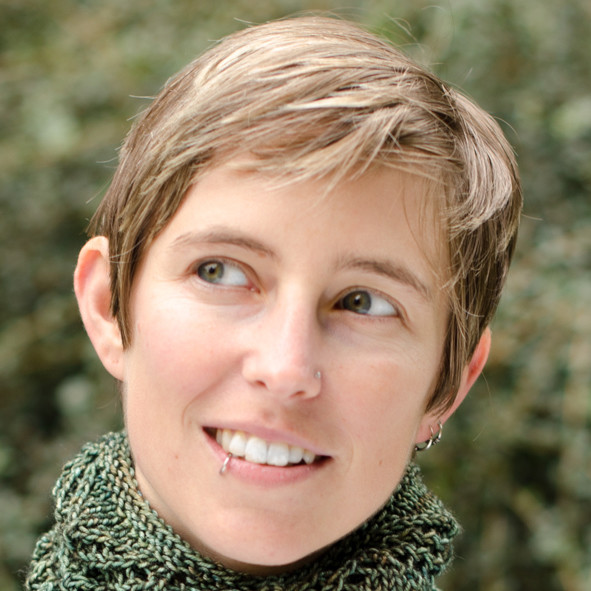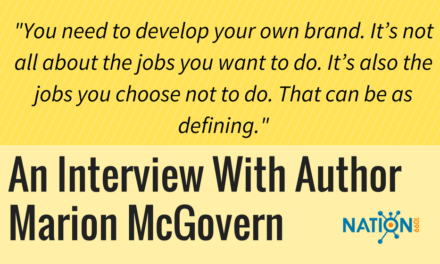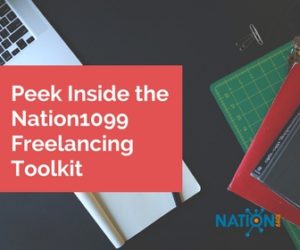Everywhere you look, independent planning consultants are calling themselves experts. Whether or not it’s true is beside the point. Just the fact that anyone could call him or herself an expert these days means that people are naturally more suspicious of the term.
Clients want to hire expert planning consultants, but they need more proof than just a tagline on your website. How can you show you really know your stuff?
By creating a body of content that conveys your ideas and communicates your brand. When you demonstrate your knowledge and skill set around a particular niche, methodology or idea, you’ll never have to mention that you are an expert. Your potential clients will see that your work speaks for itself.
It’s a slow process for planning consultants — or anyone, for that matter — to establish themselves as thought leaders. But as the saying goes, the best time to plant a tree is 20 years ago, and the second best time to plant a tree is today. Choose one of these seven strategies (or a mixture of several), and start building your expertise as an independent planning consultant today.
More on this topic: It’s the Content! How to Write a Business Plan for Your Consulting Career
1. Get on podcasts
Audio is huge, and continuing to grow. According to Edison Research, the percentage of people listening to podcasts increased from 11% to 36% over the past decade. That translates to an estimated audience of 98 million people.
Being featured on a podcast — or even starting your own — is a powerful strategy for planning consultants because listeners get used to having your voice in their ear during their commutes or while doing chores. It’s a very intimate medium, which builds a deep connection.
Starting your own podcast lets you network with industry influencers, as well. A person you admire might not ever make time for a 30 minute phone call to pick his or her brain, but they might be more than happy to say yes to an hour-long podcast interview.
2. Blog regularly
Blogging is still a fantastic way to for planning consultants to get their thoughts in front of potential clients. The key is to not hold back when writing blog posts. It may sound counterintuitive, but you have to be willing to give away your best material for free, writing in-depth, informative posts that take leaps beyond the fluffy content you find on many blogs.
Whether on your personal website or through a platform like LinkedIn or Medium, blogging regularly helps you sharpen your ideas and build a following. If you are natural in front of the camera, try starting a video blog to get in front of your audience. As a bonus, it will give your potential clients a better sense of your personality and what it’s like to work with you.
3. Contribute articles to publications
The downside of blogging is that it can take a while to build up traffic to your personal site. Why not contribute articles to magazines, trade publications and websites that your audience is already reading? Many of these sites will have regular spaces reserved for contributed articles from industry experts, which is a great way to market your brand for free.
Planning consultants should look for websites and notable blogs within their specific industry to get started. Once you’ve built up credibility by having that published writing under your belt, start pitching contributed articles to some of the bigger sites like Forbes and Business Insider.
4. Write a book
Writing a book is a time-honored way to present your expertise. And in the era of self-publishing, it’s easier than ever to create a sophisticated final product to sell — or give away as a lead magnet to build your email list.
Having a book is also an excellent way for planning consultants to open up other avenues like speaking engagements and podcast interviews. Pick a specific angle of your message that you think is missing in the conversation, and pitch it to people who are looking to feature authors. You’ll get a lot more traction with a book to your name, no matter who published it.
5. Pursue speaking opportunities
Ready to add “professional speaker” to your bio? Reach out to professional organizations within your field to request to speak at one of their meetings, or get in touch with conferences in need of panel participants. You should also keep an eye out for “Call for Papers” (CFP) from industry conferences.
Local libraries and nonprofit business centers also typically have space you can use to run free workshops. This lets you hone your material and build traction in a more intimate setting.
6. Host a webinar series
In this digital age, webinar series are becoming more and more popular. Planning consultants can partner with other industry influencers to offer free webinars that add value to the influencer’s audience while building an audience of their own.
Virtual conferences are also becoming more popular, where a series of experts provide live trainings for online audiences. You can always reach out to established virtual conferences to offer yourself as a panelist, but don’t feel limited to someone else’s. If you know and trust two or three other planning consultants, consider linking up to create your own.
7. Teach a course
Set yourself up as the expert on a topic by teaching a course about it. A number of websites like Udemy and Skillshare make it easy to record a course and make it available to their large audiences of learners. You can also create the course as a series of free YouTube videos, or sell it through your website.
If you hate the thought of being on video, consider creating an email course set up as a series of autoresponders.
It takes time for planning consultants to build expertise
Whichever one of these ideas seems best to you, pursue it consistently. Maybe that’s blogging twice a week, committing to a bimonthly podcast or hosting a workshop at your local library every Tuesday night. All of these strategies take time, but over time they’ll pay off greatly.
Looking for jobs for planning consultants? Check out our guide to the best marketplaces for independent consulting jobs.

Jessie Kwak author bio
Jessie Kwak is a freelance writer and novelist living in Portland, Oregon. She writes for B2B brands in educational technology, SaaS and related industries. You can learn more about her work at www.jlkwak.com.










